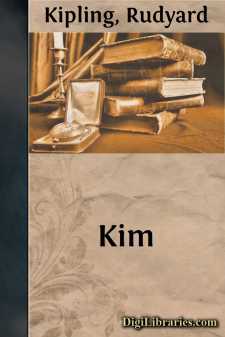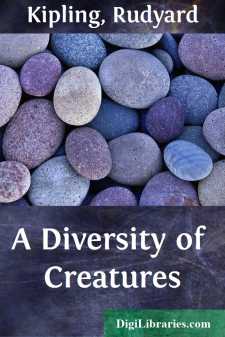Categories
- Antiques & Collectibles 13
- Architecture 36
- Art 48
- Bibles 22
- Biography & Autobiography 813
- Body, Mind & Spirit 141
- Business & Economics 28
- Children's Books 12
- Children's Fiction 9
- Computers 4
- Cooking 94
- Crafts & Hobbies 4
- Drama 346
- Education 46
- Family & Relationships 57
- Fiction 11826
- Games 19
- Gardening 17
- Health & Fitness 34
- History 1377
- House & Home 1
- Humor 147
- Juvenile Fiction 1873
- Juvenile Nonfiction 202
- Language Arts & Disciplines 88
- Law 16
- Literary Collections 686
- Literary Criticism 179
- Mathematics 13
- Medical 41
- Music 40
- Nature 179
- Non-Classifiable 1768
- Performing Arts 7
- Periodicals 1453
- Philosophy 64
- Photography 2
- Poetry 896
- Political Science 203
- Psychology 42
- Reference 154
- Religion 513
- Science 126
- Self-Help 83
- Social Science 81
- Sports & Recreation 34
- Study Aids 3
- Technology & Engineering 59
- Transportation 23
- Travel 463
- True Crime 29
Plain Tales from the Hills
by: Rudyard Kipling
Categories:
Description:
Excerpt
LISPETH.
Look, you have cast out Love! What Gods are these
You bid me please?
The Three in One, the One in Three? Not so!
To my own Gods I go.
It may be they shall give me greater ease
Than your cold Christ and tangled Trinities.
The Convert.
She was the daughter of Sonoo, a Hill-man, and Jadeh his wife. One year their maize failed, and two bears spent the night in their only poppy-field just above the Sutlej Valley on the Kotgarth side; so, next season, they turned Christian, and brought their baby to the Mission to be baptized. The Kotgarth Chaplain christened her Elizabeth, and "Lispeth" is the Hill or pahari pronunciation.
Later, cholera came into the Kotgarth Valley and carried off Sonoo and Jadeh, and Lispeth became half-servant, half-companion to the wife of the then Chaplain of Kotgarth. This was after the reign of the Moravian missionaries, but before Kotgarth had quite forgotten her title of "Mistress of the Northern Hills."
Whether Christianity improved Lispeth, or whether the gods of her own people would have done as much for her under any circumstances, I do not know; but she grew very lovely. When a Hill girl grows lovely, she is worth traveling fifty miles over bad ground to look upon. Lispeth had a Greek face—one of those faces people paint so often, and see so seldom. She was of a pale, ivory color and, for her race, extremely tall. Also, she possessed eyes that were wonderful; and, had she not been dressed in the abominable print-cloths affected by Missions, you would, meeting her on the hill-side unexpectedly, have thought her the original Diana of the Romans going out to slay.
Lispeth took to Christianity readily, and did not abandon it when she reached womanhood, as do some Hill girls. Her own people hated her because she had, they said, become a memsahib and washed herself daily; and the Chaplain's wife did not know what to do with her. Somehow, one cannot ask a stately goddess, five foot ten in her shoes, to clean plates and dishes. So she played with the Chaplain's children and took classes in the Sunday School, and read all the books in the house, and grew more and more beautiful, like the Princesses in fairy tales. The Chaplain's wife said that the girl ought to take service in Simla as a nurse or something "genteel." But Lispeth did not want to take service. She was very happy where she was.
When travellers—there were not many in those years—came to Kotgarth, Lispeth used to lock herself into her own room for fear they might take her away to Simla, or somewhere out into the unknown world.
One day, a few months after she was seventeen years old, Lispeth went out for a walk. She did not walk in the manner of English ladies—a mile and a half out, and a ride back again. She covered between twenty and thirty miles in her little constitutionals, all about and about, between Kotgarth and Narkunda. This time she came back at full dusk, stepping down the breakneck descent into Kotgarth with something heavy in her arms. The Chaplain's wife was dozing in the drawing-room when Lispeth came in breathing hard and very exhausted with her burden....












